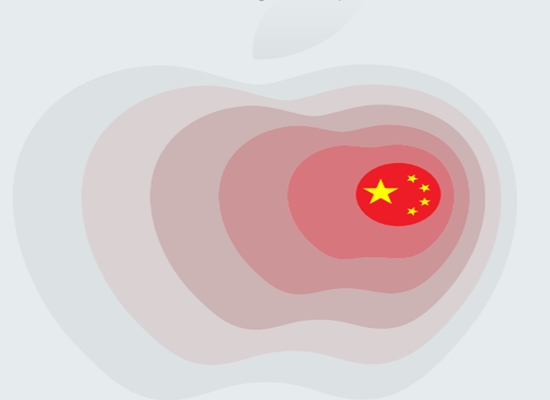
The ten most-downloaded apps in the world are “unavailable or inaccessible in China,” according to a June 25, 2024 GlobalVoices article by Oiwan Lam.
If you live in China and want to download and use any of these and many thousands of other Apple apps, you’re out of luck unless you have a virtual private network (VPN) that hides your IP address and perhaps encrypts your Internet connection. But skirting censorship in this way is also becoming harder in China, and VPN apps are among the apps that Apple has removed from its China app store in obedience to the Chinese government.
A recent research report on Apple censorship in China, “Isolation by Design,” conducted by the App Censorship project under GreatFire, a censorship monitor group based in China, indicates that more than 60 percent of the world’s top 100 apps in China Apple App stores are either unavailable or inaccessible in China. These apps include Google Maps, YouTube, Instagram, WhatsApp, Telegram, Facebook, Messenger and Twitter.
A more compelling fact is that among the top 10 most downloaded apps worldwide, five are unavailable, and the rest are blocked from access in China….
As of March 2023, 11,026 out of a total of 40,049 apps were unavailable in the China Apple Stores. The ratio of unavailability was 27.53 percent, the highest among 175 region-based App Stores run by Apple, according to the App Censorship report.
The top ten categories of censored apps are 1. Games (5,532), 2. Utilities, which includes VPNs (501), 3. Education (355), 4. Productivity (326), 5. Social Networking (324), 6. Entertainment (302), 7. Book (283), 8. Lifestyle (234), 9. News (205), and 10. Finance (193).
In addition to the above-listed, apps in several “sensitive categories” are especially susceptible to being banned from Apple’s China app store or at least blocked by China: VPNs, privacy-protecting apps like Signal and ProtonMail, gay dating apps, apps catering to Tibetans and Uyghurs, and religious apps.
In a 2021 article on Apple’s accommodating of Chinese, the BBC quoted James Griffiths, author of The Great Firewall of China: “Apple has set itself a devil’s bargain here. Once you start to agree to remove apps, it doesn’t really stop.”
Apple may and does say that in order to sell its stuff in China and “promote openness,” it must “remain engaged, even where we disagree with a country’s laws”—for example, laws systematically restricting the “freedom of information and expression” to which Apple says it is committed.
But Apple does not have to cooperate. Apple doesn’t have to sell stuff in China or make stuff there either. China hasn’t enslaved the company, except perhaps ideologically.
Also see:
AppCensorship.org: “Isolation by Design: Censorship in Apple’s App Store in China and Human Rights Implications”
“[Apple] does not provide detailed information about the legal basis for app takedowns or the processes involved in these decisions. Through the data collected by the AppleCensorship website’s App Store Monitor (ASM), the report highlights the disparity between Apple’s public commitments to human rights and its compliance with government app takedown requests in China.”





